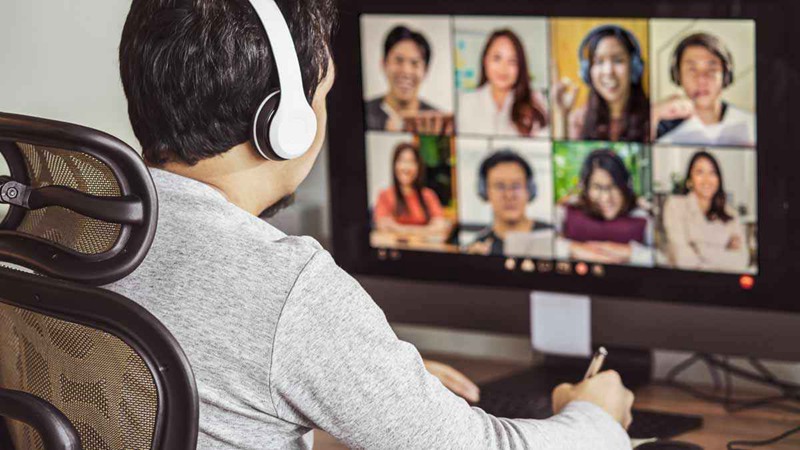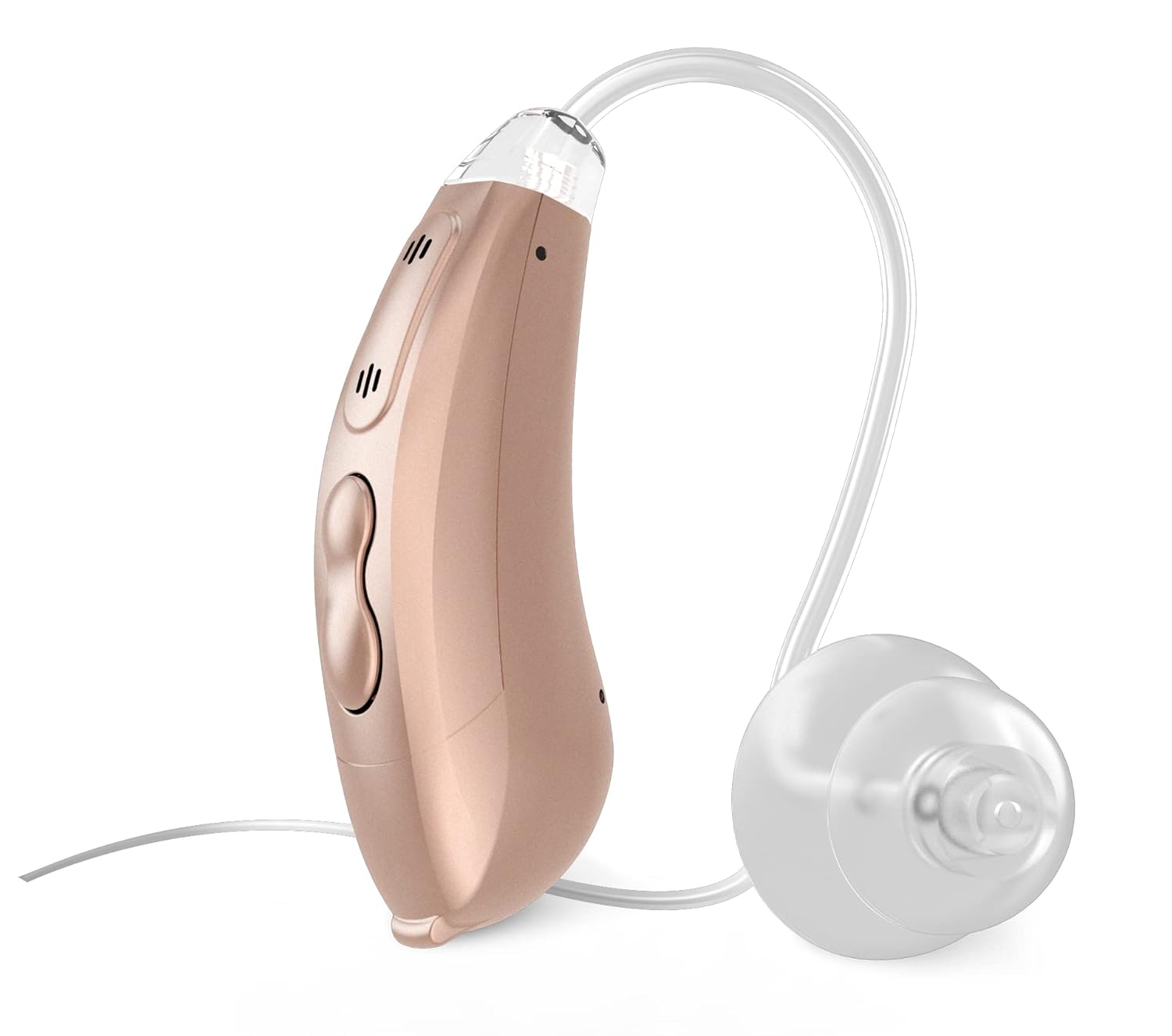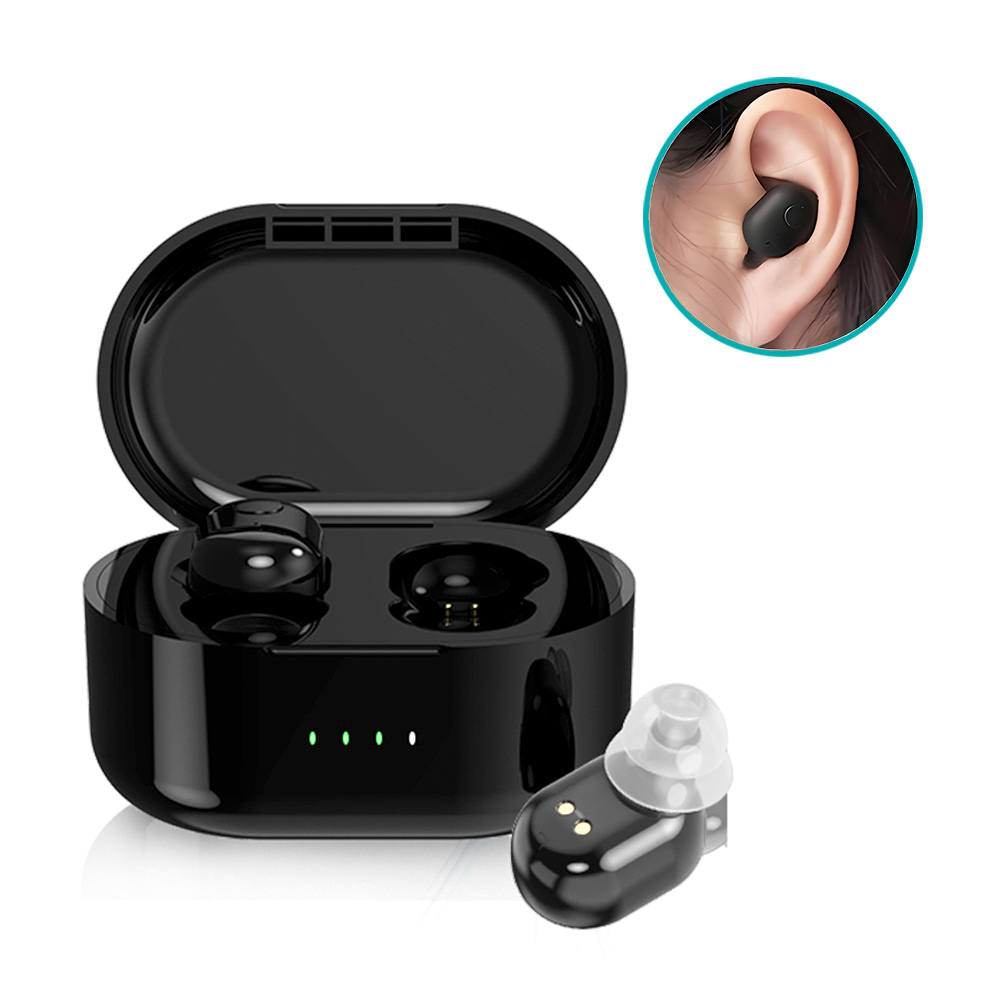
The coronavirus pandemic has changed people’s lives dramatically, including how we work. A January report from the company Upwork found that 41.8 percent of the American workforce remains fully remote nine months after the COVID-19 crisis began.
Whether you call it remote work or WFH (working from home), most hiring managers say the practice has boosted employee productivity. But that doesn’t mean it’s been a totally positive experience for everyone. People who are hard of hearing, for example, may cope with their own set of difficulties. Factors like coping with background noise, loneliness, and listening fatigue can be especially challenging. Here, a closer look — and ways to enhance the situation.
Improving video calls
Background noise can make it difficult for people with hearing loss to understand what others are saying, whether the conversations are held in person, by phone or video call. Working from home — as so many of us are doing in this age of COVID-19 — can intensify this challenge. Other family members may be engaged in their own calls or remote learning in the background, necessitating creative solutions to share our spaces.
It’s not all bad news, though. Kellyann Navarre, a psychology research assistant in Michigan with mild hearing loss and auditory processing disorder, has worked remotely since last year.
“In a virtual setting, I have more control over background noise by using headphones or by muting other people when they are not speaking,” Navarre told Hearing Tracker. However, she does see ways to boost accessibility. “If colleagues don’t have their video on when they speak, they can be harder to understand because I cannot see them,” she says. When individuals show their faces on camera, with adequate lighting, it greatly enhances the experience for the hard of hearing and allows for lip-reading. If they are speaking from a noisy environment, go ahead and ask them to mute their microphone when they aren’t speaking.
Removing background noise with software
Aside from the above communication hacks, there are a number of software solutions that help remove the pesky background noise that often plagues remote meetings.
- Krisp - Works on Mac and Windows. Membership model with free limited account option.
- Google Meet - Built-in noise filtering “currently available to Enterprise Plus and Google Workspace for Education Plus accounts on web, Android, and iOS.”
- Microsoft Teams - Windows only. AVX2 Required.
- Zoom - Mac and Windows. User may adjust aggressiveness.
- Bose PinPoint - Limited availability in a closed beta.
- Yabber - Mac only. Windows coming soon. One time purchase of £59.99.
For those that need a little more help, there are also a number of options for live-captioning your virtual meetings.
Lessening loneliness
In a pre-COVID-19 world, those with hearing issues already struggled with feeling “left out.” Research has shown that a sense of loneliness can be common in young people who are hard of hearing as well among the elders who experience age-related hearing loss. Today, the problem may be intensified as many people who are not essential workers are self-isolating at home.
Divyansu Patel, a psychiatrist at TeleMed2U, spelled out the challenges for Hearing Tracker. “Poor video quality and masks that have made lip reading more difficult, and there’s less accommodation in terms of work,” Patel said. “Isolation has been difficult for many during this pandemic, but it has been more challenging for people who are hard of hearing.” Patel believes that these problems can lead to worsening mental health for those with hearing issues, as they are struggling to get their work done and feeling especially lonely. Recognizing this and seeking support and connection is important as we move through the pandemic.
Facing listening fatigue
Even before the pandemic, research showed that listening can be extremely tiring for people with hearing loss due to the concentration it requires. This in turn can lead to a deeper cognitive fatigue, according to a 2014 article by Vanderbilt University’s Fred H. Bess, professor and Director of National Center for Childhood Deafness and Family Communication, and Benjamin W. Y. Hornsby, associate professor of audiology.
Now, consider how that load has been intensified given the current state of the world. Many of us have multiple video meetings a day on Zoom, which can prove to be mentally exhausting.
Tracey Nicole, a member of Hearing Tracker’s “Hearing Aid Forum” Facebook group, shared in a comment that while she likes working remotely, Zoom fatigue is a definite force in her life. “I work one-on-one with people in the mental-health field,” she wrote. “I can generally see and hear people clearly and still lip-read if needed. I just get more exhausted by the end of the day than I did in-person given the amount of screen time I have now.”
How to regain your focus and your energy
An article in News@Northeastern recommends that people try these tips to regain your focus and energy:
- Disconnect when you need to. Everyone deserves a bit of time off now and then to regroup.
- If you can, schedule time between virtual meetings. If you need time alone, take it. If you need time with a real, live person, seek out the opportunity while keeping safe. If you just need to move around a bit, do that.
- Practice mindfulness. Meditate. Do yoga. All can help you replenish.
- Have compassion for yourself and for others.
- Establish daily routines. Your day should be different from your evening, and your weekday should be different from your weekend. Don’t let endless Zoom meetings take over your life.







